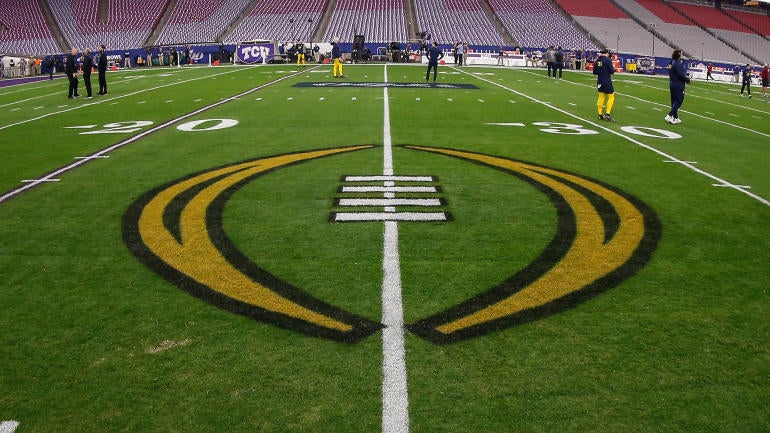
IRVING, Texas -- Pac-12 commissioner George Kliavkoff made his first public appearance Wednesday since the conference suffered mass defections in the latest wave of conference realignment. Kliavkoff, alongside commissioners from the other nine Football Bowl Subdivision conferences, was in town for a meeting of the College Football Playoff Management Committee. Instead of taking questions, however, Kliavkoff rushed to the escalator at DFW Airport, saying only that he was focused on bringing a national championship to the Pac-12 this year.
Stanford, California, Oregon State and Washington State are all that remains of the Pac-12 as those schools look for new conference homes. The current Pac-12 TV deal expires June 30, 2024. The ACC has explored the possibility of adding the Bay Area schools, while Oregon State and Washington State are considering their options, most likely in the Mountain West or American Athletic Conference.
With so much up in the air, the management committee opted to wait before seriously discussing alternative models for the expanded 12-team College Football Playoff.
"We're going to have to wait and see and wait for the dust to settle before making any decisions about how that might affect the CFP," executive director Bill Hancock said. "That fact is we don't know yet, no one knows how conference realignment is going to wind up. It would be premature to make any of these decisions."
ACC commissioner Jim Phillips appeared via Zoom due to weather delays in travel and did not provide any realignment updates to the committee. The ACC previously scheduled a meeting to discuss adding Stanford, Cal and perhaps SMU. However, that meeting was indefinitely postponed after a school shooting at the University of North Carolina on Monday.
"It'll get resolved pretty quickly," said AAC commissioner Mike Aresco, who has remained in constant contact with SMU. "I don't think it can go on too much longer. None of this is really healthy when it drags on too much longer."
Much of this is contingent on what happens next. If the Pac-12 completely collapses, it would leave the FBS with nine conferences. If the Pac-12 ultimately rebuilds with its four remaining teams, the league would have the right to block any format change for the next two years
Different models have been publicly rumored. The model currently approved by the CFP Board of Managers -- made up of university presidents and chancellors -- features the top six conference champions and top six at-large squads meeting in a 12-team field. Hancock confirmed that the committee also discussed a model with five auto-bids and seven at-large teams.
MAC commissioner Jon Steinbrecher remained firm on his desire to keep auto bids for conference champions, something for which he believes there is still support. Any change to the existing CFP structure requires a unanimous vote of the Board of Managers.
"The principle of honoring conference champions is important," Steinbrecher said. "I think it's a bedrock principle of what we're doing here. I think that's important that it's continued when we head forward. Depending on the number of conferences we have, I think you can have a conversation about the number of champions we send here. I felt good about that conversation."
While most of the focus has been on the format change, the primary purpose of the Wednesday meeting was logistics. The committee passed a stipend so that player families can travel to all rounds of the playoff. Additionally, the commissioners met in an executive session to discuss next steps to replace Hancock, who is retiring next year. Plans for further national championship game sites were also discussed.
"I think you've got to consider that circumstances have changed," SEC commissioner Greg Sankey said. "And that's one person's perspective, but we have to see what circumstances are. That seems like a reasonable precursor. Right now, we have a format. Let's keep working on the format."





















